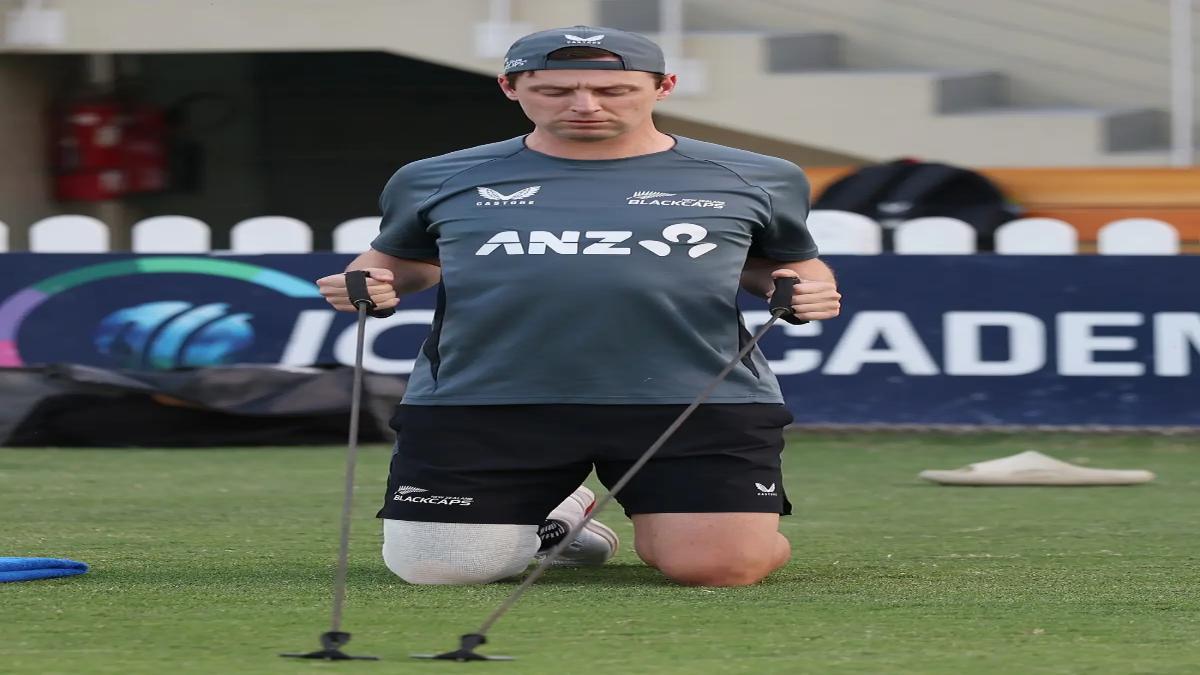Despite missing the final, Matt Henry finished as the leading wicket-taker of the Champions Trophy.
Henry was eager to play in the final, especially after his impressive five-wicket haul against India in Dubai during the group stage. He had been in top form throughout the tournament, and even after injuring his shoulder while taking Heinrich Klaasen’s catch in the semi-final against South Africa, he continued bowling and fielding.
However, the injury ultimately ruled him out of the final against an Indian side he has historically performed well against. In 11 ODIs against India, Henry has claimed 21 wickets at an average of 21.00, with an economy rate of 4.48. While New Zealand’s bowlers did manage to cause a few hiccups in India’s chase, the opposition reached the target with four wickets in hand and an over to spare.
Captain Mitchell Santner acknowledged Henry’s absence as a significant setback. His replacement, Nathan Smith, bowled only two overs in the final. Henry underwent a fitness test before the match but was visibly devastated when he failed to pass it.
“He was the leading wicket-taker coming into this game, and he’s an outstanding bowler, as we’ve seen,” Santner said. Henry’s ten wickets at an average of 16.70 kept him at the top of the tournament’s wicket-takers list despite missing the final. “He seems to find movement on surfaces where it shouldn’t be possible, and we definitely missed that today. I feel for Matty. He’s a massive team man, and he looked pretty distraught.
“We told ourselves, ‘Let’s do it for him.’ Coming this far and then missing the biggest game due to injury was tough for him and for us. He did everything he could to be ready, but unfortunately, it wasn’t meant to be.”
New Zealand’s Tough Journey Through the Tournament
New Zealand faced several challenges beyond Henry’s injury. Unlike India, who played all their matches in Dubai, New Zealand had to travel between Dubai and all three venues in Pakistan, making them the only team in the tournament to compete at four different locations.
Rachin Ravindra, who was named Player of the Tournament for his 263 runs at an average of 65.75 and a strike rate of 106.47, also contributed with three wickets. However, his campaign had a rocky start—he suffered a forehead injury while attempting a catch during the tri-series in Pakistan leading up to the Champions Trophy.
Kyle Jamieson, meanwhile, was a late addition to the squad, replacing Lockie Ferguson, who was injured during the ILT20.
“With the quick turnaround of games, things don’t always go perfectly in tournaments like this,” Santner said. “But what’s most pleasing is that different guys stepped up when needed. I couldn’t be prouder of the group.
“There were injuries, players coming in and out, but the way Rachin returned after his head knock and immediately delivered was fantastic. And Kyle Jamieson, flying in at the last moment and slotting right into the team, bowled extremely well.”
The Final: Early Dominance, but Spinners Turn the Game
Although New Zealand made some fielding errors while defending 253 in the final, Santner pointed to their batting collapse as the decisive factor.
The team started strongly, reaching 57 for no loss in 7.4 overs. However, a sudden collapse saw Will Young, Ravindra, and Kane Williamson depart in quick succession, reducing them to 75 for 3 in 12.2 overs. Varun Chakravarthy delivered the first breakthrough, while Kuldeep Yadav dismissed Ravindra and Williamson in the span of seven balls.
“I think the way we batted in the first eight overs was outstanding,” Santner said. “But then, India’s spinners produced some brilliance, which really pulled us back and made the middle phase challenging.
“After that start, we were probably aiming for around 275-280. Credit goes to Kuldeep for the way he bowled straight after the powerplay, and to Varun for his impact inside the powerplay.”


